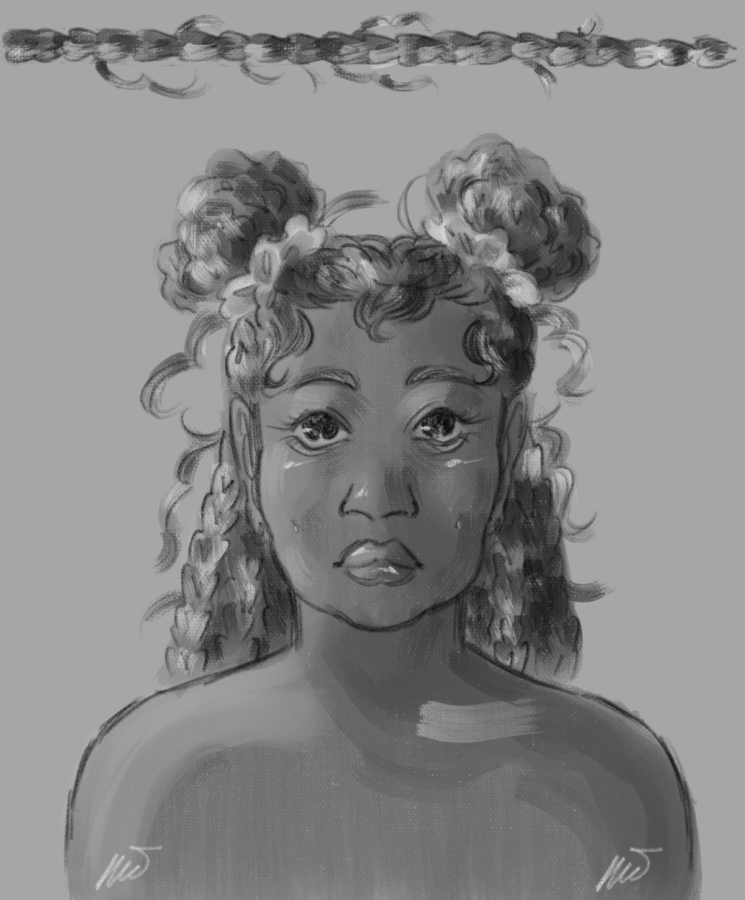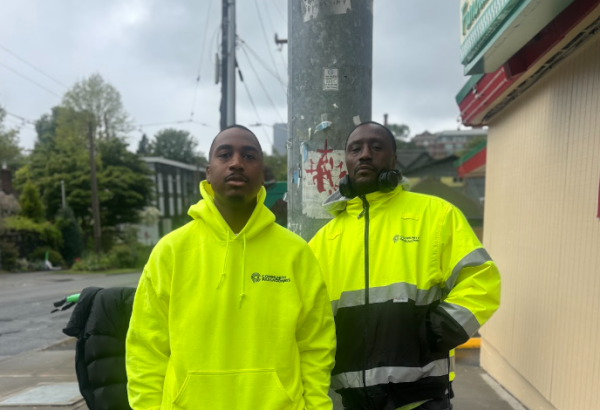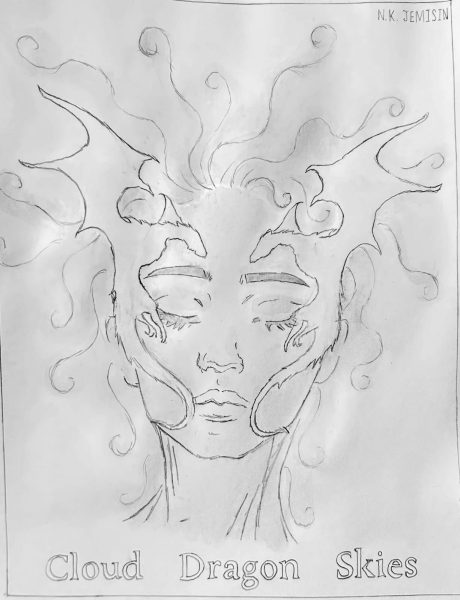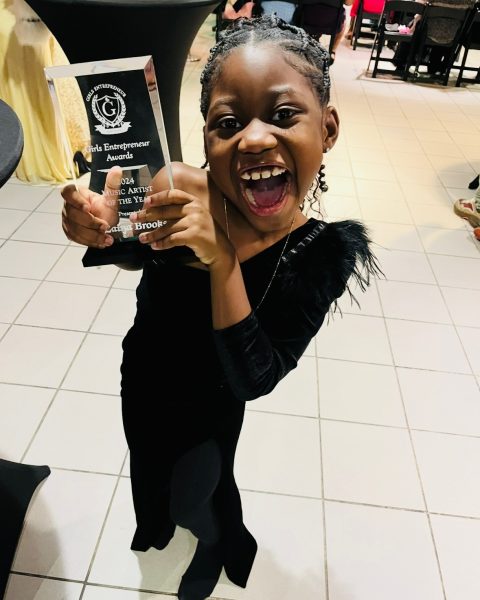The Significance of Black Hair
Hair is a centerpiece of Black culture; it’s a symbol of identity, of resistance, creative expression and freedom. It is woven deep into Black culture and therefore rooted in the history of America.
The evolution of Black hair in America is deeply connected to race relations, and popular styles over the years have represented the state of Black American progress. Early America didn’t allow for Black people, much less Black hair, to be free. Eurocentric beauty standards were ingrained into the foundational power structures of the United States, and styles that flattened and parted hair allowed Black people to assimilate to white society in order to survive. However Black culture branched further away from white-dominated standards, leading to an evolution of natural Black hairstyles. The afro was popularized by The Black Panther Party and revolutionists like Angela Davis, and it became a symbol of unapologetic Black resistance during the Civil Rights Movement. The rise of hip hop in the 90s led to an explosion of new hair trends. Black celebrities like Janet Jackson, Lauryn Hill, and Lil Kim expanded the possibilities for what hair could be. Since the 2000s, natural, artificial and pressed hair alike express the full versatility and beauty of Black hair, but hair liberation hasn’t come without a fight.
Different hairstyles have long been weighted with stereotypes in attempts to define the wearer or excuse racism. Instead of the diversity of Black hair being celebrated, it has been persecuted for centuries by people in power to withhold opportunities from Black individuals. Race-based hair discrimination is just one example of the covert racism people all over the country have to face for simply being Black. Schools and workplaces often have discriminatory policies that prohibit many of the natural and protective styles meant for Black hair. These policies systematically disadvantage Black people and are one of the many barriers that are designed to preserve white spaces. Clearly, as far as society has come in normalizing Black hair, there is still a lot farther to go. In 2019 the CROWN Act (Creating a Respectful Open World for Natural hair) was signed by the governor of California, which prohibited race-based hair policies and became a catalyst for eleven states to follow suit.
Black hair continues to represent the history and legacy of Blackness in America. Hair provides a unique space for Black communities to connect, relax and socialize. Since they began in the early 1900s, Black barbershops and beauty salons have represented the heart of social and economic success in predominantly Black neighborhoods. Stores that center around the specific maintenance that Black hair requires have been the center of Black communities for decades. Even during periods of economic struggle, barbershops and beauty salons in Black neighborhoods remained thriving.
The maintenance required for Black hair further emphasizes its value in the Black community. The Black hair care industry is worth more than $2.5 billion, with Black women spending two to six times as much on hair care than their white counterparts. The hair care industry has been a major business opportunity for specifically Black women to enter the corporate world, and Black-owned beauty brands are continually on the rise. After all, Madame C.J Walker became the first Black American millionaire in the early 1900s with her line of homemade hair products.
It’s important to note the diversity of what Black hair can look like – and what tends to be celebrated versus what doesn’t. The pressure to upkeep one’s hair to look ‘acceptable’ can feed the harmful idea that certain (usually European-textured) hair is preferable to how Black hair looks normally, without the hours of work. And while hair may be one integral part of Black culture and identity, hair cannot possibly define a person, nor should it. Black hair in and of itself is worthy of celebration, no matter the texture or style. The freedom to wear one’s hair however they want, weave or no weave, braids or bonnet, is an integral part of Black liberation.







Anonymous • Jul 8, 2023 at 6:07 AM
Puerto Rican’s are a mix of different “races” . Thus, many have and wear afros, braids, dreads or natural and use hair products to beautify our hair. Celebrate yourself! ??
Jay • May 21, 2023 at 4:59 PM
Ulotrichi
Doctor Kurtis Bush • May 3, 2023 at 5:58 PM
Wonderful literary piece. Than you.
Jean Alstad • May 3, 2023 at 9:28 AM
I wanted to find out where the importance of hair stood for a black person, more so, women! It’s is my opinion! I highly stress! My opinion! That as mothers, women, the foundation of who gives birth to a culture, we so need to check ourselves, which I might say, maybe too late! Pay attention please! Our KIDS are DYING!!! Our KIDS is OUT OF CONTROL! Our KIDS are Killing our OWN! We have become a culture of self love with ignorance! Forgetting the cost and hardship of who we were and where we came from! Coming from ancestors of raising kids in all manner of hardship! Striving to implore endurance in all that came at us, but forgetting the importance of LOVE…. It is not our hair that makes us! It’s the struggle of where and what we have suffered! It’s the struggle of acceptance of the natural beauty of what the good lord created in us! Unity first! Enduring hardship! But rising up as the mighty warriors of our being! We have lost ourselves in a world of self gratification of keeping up with, and forget to see the deepest of our roots! Plant a seed and water it well,, with care and love, then we can reap the proudness and respect of what we have achieved in humbleness…. One should see the truth of what country that benefits from the billions of dollar spent on hair by black people! a Country that refuses to sell to any black business… note a business that only benefits us, if produce by us! oh wait! we don’t support our own! Sadly…. My point in all this! A six year old died this week from a gun shot! This is not blood related, but how could I not feel the pain, how could I not be afraid for my own two grandson? How could I not be afraid for our young black kids? How could I not question the important of my black people? We are losing the battle of life….we are killing our own people! For What? someone tell me what is going on with us as a people please..
Anonymous • Sep 8, 2024 at 3:07 PM
why were blacks made with knotty kinky hair??
NAOMI • Sep 8, 2024 at 3:13 PM
They don”t know JESUS. So What do you expect? If you LIVE By the SWORD and not exposed to GOD> YOU WILL DIE BY THE SWORD. YOU ARE WHAT YOU EAT! NOGOD NO PRIDE!
Anonymous • Apr 29, 2023 at 7:24 AM
Asians and Indians profit more off the black hair industry more than any other race including blacks. Weave and Euro textured hair degrades your image as a black women. Wear what God gave you and focus less on vanity and the beauty of others.
Andrea • Sep 17, 2022 at 6:09 PM
Beautifully written. Thank you.